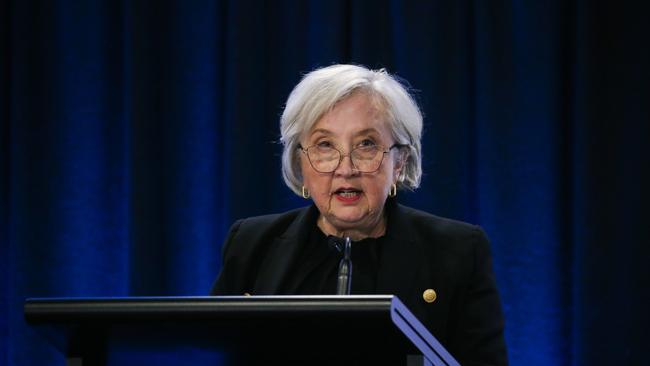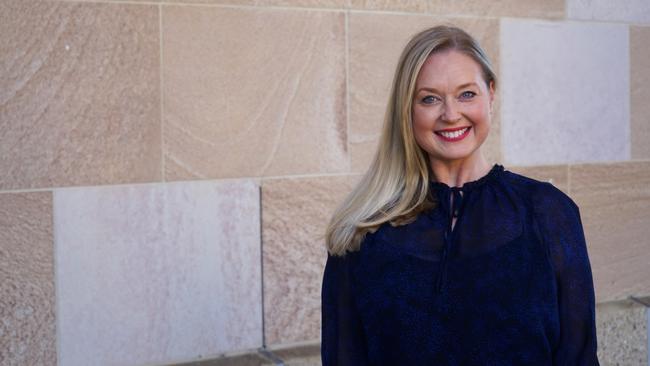“Punishing and locking up children who have complex needs caused by poverty, homelessness, disability, racism and mental health issues will not make our communities safer.”
Those chilling words from Anne Hollonds, the National Children’s Commissioner, aim to turn the focus on elevating child justice and wellbeing to a national priority, including the appointment of an inaugural federal Minister for Children.
She said governments that are swayed by populist tough on crime rhetoric, fanned by sensationalist media reporting of child offending, are taking the wrong approach with children being traumatised, brutalised and criminalised.
The link between child abuse and juvenile crime is so toxic in Australia, and worsening, the federal government must appoint a specific cabinet Minister for Children to co-ordinate action across Australia and ensure reform of our child justice system is based on evidence and human rights.

Children are being placed back into abusive environments with no advocacy, ending up on the streets in sexploitation, criminal gangs, and juvenile justice systems because they do not have a voice.
Young people whose maltreatment is chronic, and persists from childhood into adolescence, are much more likely to be involved in crime and the juvenile justice system than those whose maltreatment is limited to their early childhood.
There is evidence linking child abuse and neglect to substance abuse, suicide and later criminally offending and involvement in the juvenile justice system.
While males were consistently more likely to criminally offend than females, adolescent females who did offend and spent time in custody were more likely to have been maltreated than their male counterparts.
Maltreated adolescents are more likely to run away, become homeless, and engage in illegal and survival activities that bring them to the attention of police.
The involvement of police rather than child protection services means the interventions these adolescents receive are more likely to criminalise them than treat them.
And so starts the perpetual cycle for criminal recidivism.
In April 2024 the state’s youth crime epidemic was laid bare with the number of young criminals in Queensland jumping 5.2 per cent to 11,191 offenders, with 11 of those charged with murder.
The crime rate for all offences in 2023 was 928 per 100,000 people - up from 870 in 2022.
The most common offence? Theft.
The cries of abused children are so loud they must be given a voice in parliament to ensure their rights are protected and lay the foundations for healing from the ground up.
Delegates at the inaugural Children and Young People at Risk Summit I attended recently in Melbourne were united in our support of Ms Hollonds.
Her report ‘How Australia can transform child justice to improve safety and wellbeing’ – tabled in federal parliament August 2024 – set out a suite of recommendations designed to help vulnerable children thrive, reinstate their sense of purpose and belonging, and subsequently reduce juvenile crime and keep the community safer.

Conference delegates joined the call by Emma Gierschick OAM, for a new national campaign ACT for Children (www.actforchildren.net).
We call for urgent and co-ordinated action through measures such as a National Taskforce for reform of child justice, a federal Minister for Children, a Ministerial Council for Child Wellbeing and a National Children’s Act.
We need a federal cabinet minister and a nationally co-ordinated childcare program where many of these young criminals will be intercepted, listened to and rehabilitated.
Under the leadership of a federal Minister for Children, successful programs such as Booyah, Raise Foundation and others on the Gold Coast would be funded, co-ordinated and implemented to address intergenerational trauma to build relationships that protect and help children who are acting out of self-preservation.
The Minister for Children would set gold standards of trauma-informed risk assessment and treatment to help keep children safe and help block their transition to crime.
The recent Australian Childhood Maltreatment study showed child maltreatment in Australia, and the ensuing social and criminal offending that follows, are much bigger problems than we thought.
Dr Cher McGillivray is an Assistant Professor at Bond University and registered Clinical Psychologist, researcher, speaker, writer and media commentator on children, families and community wellbeing. She focuses on positive social change and advocates for the rights and wellbeing of children and restoring familial foundations for families.

Add your comment to this story
To join the conversation, please log in. Don't have an account? Register
Join the conversation, you are commenting as Logout
Parent fury after girls allegedly take box cutters to school
Parents are outraged two students from a Catholic primary school on the Gold Coast allegedly brought box cutters onto campus and threatened their peers.
Alleged firebug behind $100K hotel blaze surrenders to court
A man who police allege started a fire at a Surfers Paradise hotel amid a mental health and substance abuse meltdown has had a warrant for his arrest cancelled after surrendering to the court at Southport.